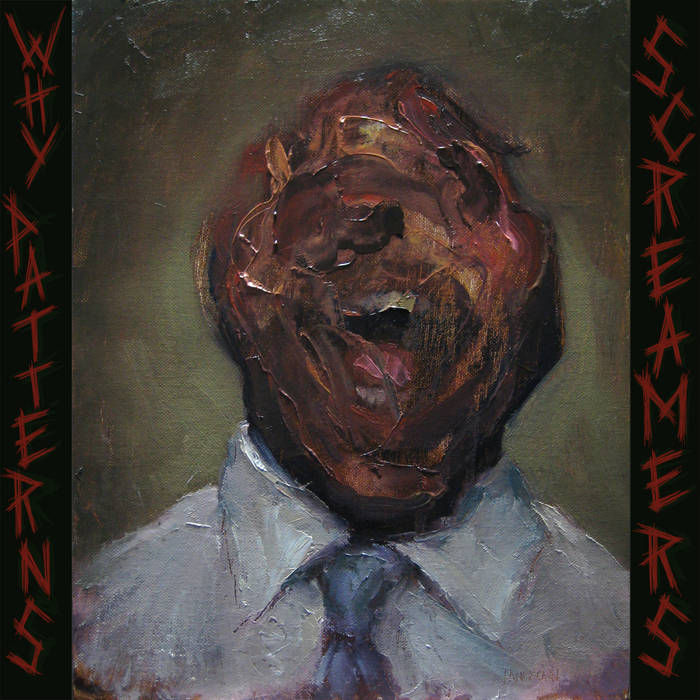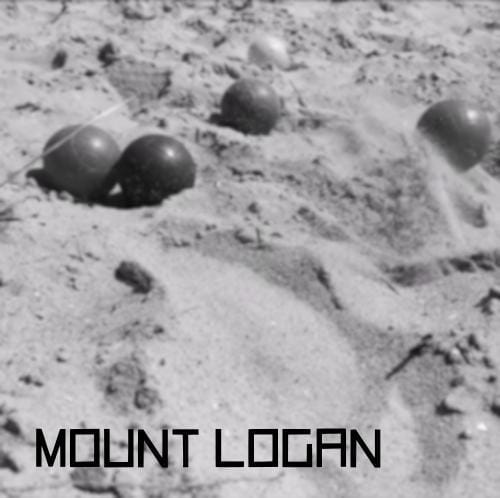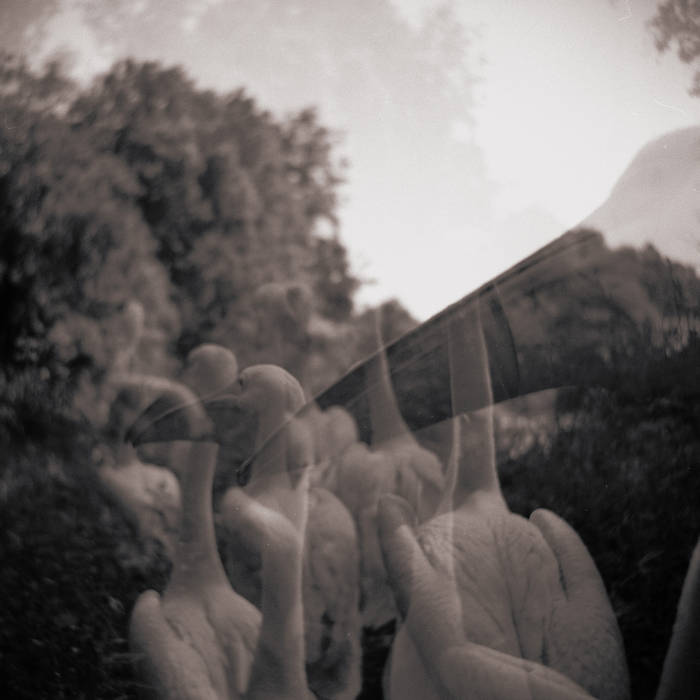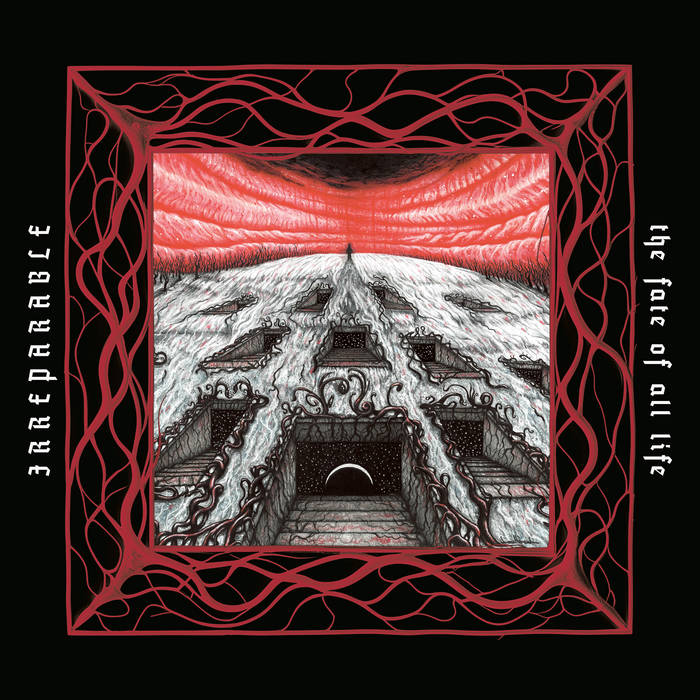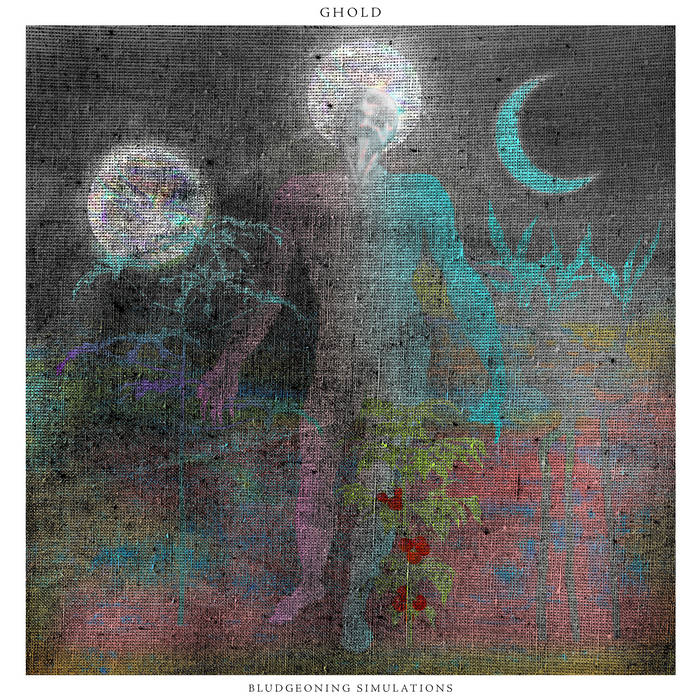“First we take Pyongyang, then we take Tehran.” (not Leonard Cohen)
Being ambitious certainly is an overused term in the world of music, especially when you compare most albums described by it to what in the now forty-five year long history of Laibach is just their regular Tuesday. The project documented on their latest album however is remarkably ambitious even for the Slovene collective’s standards. And it failed spectacularly! At least so far.
I actually wanted to write this review weeks ago, but many other things got in the way, among them a mean writer’s block. Let’s just say that it doesn’t always help when everything surrounding a release is so huge and there’s such an overwhelming richness of sources, history and experiences to pull from. You somehow have to curate your thoughts on the matter carefully, so your text doesn’t get completely out of hand while still including what seems most crucial to you. That starts with the decision how deep to dive into the topic Laibach itself to make this accessible for the uninitiated - what to assume to be essential about them in the context of this album, what to assume to be known and what to optionally leave the reader to research.
While there’s a giant discography of studio and live recordings, theatrical compositions and soundtracks, which combines Industrial, Electronic, Neo-Classical, Pop, Rock and far more other styles than anyone could ever expect on first glance to a unique body of work, some Goths for example might only know the group by their 2003 DAF tribute Dance hit “Tanz mit Laibach”, while comic film nerds may have heard their 1984 single “Panorama” used in the 2002 Spider-Man soundtrack.
Most casual listeners however will still connect the name mainly with their streak of infamous brute yet subversive cover versions in the 1980’s: The Rolling Stones (“Sympathy With The Devil”), The Beatles (the whole Let It Be album except for the title track) and of course Opus, whose infamous party hit “Life Is Life” was turned into the stomping militaristic “Leben heißt Leben”, while Queen’s “One Vision” revealed its full propagandistic potential as “Geburt einer Nation” (=“Birth of a Nation”), which is a reference to the 1915 silent film of the same name; one of the most influential works of American cinema. And also incredibly racist and pro-KKK.
You already see what I was worried about, right? Every subject opens a can of worms. And out of every can of worms come worms who open more cans of worms.
So during said time Laibach were the Barbarians from the East, who laid bare the fascist undertone of Pop culture by crudely Germanizing Rock hits from the West. Ironically in 2015 they gathered worldwide attention beyond their fan base again by being the first Rock band from the West to ever play a show in North Korea. That show mostly consisted of songs from The Sound Of Music. The American Rodgers/Hammerstein musical film about Austrian immigrants, which is rather obscure in Austria or the rest of Europe, features some highly problematic content in itself, but is somehow among the few pieces of foreign media not forbidden under the secluded authoritarian regime. For a group always juggling humanism and politics in multiple, often controversial layers of meaning the whole stunt, which was prepared and orchestrated over many years by Norwegian action artist Morten Traavik and resulted in the fascinating documentary Liberation Day, undoubtly was an artistic pinnacle that begets the question: What now?
And here’s where Alamut started. Someone answered this question jokingly with something in the lines of “I guess we’ll have to go to Iran now.”
In September 2022 that joke had transformed into two consecutive ninety minutes long open air performances in the Monestary of the Holy Cross in the centre of the Slovenian capital Ljubljana. It was a huge setup, presented by the London-based non-profit organisation a/ political, collaboratively written with Iranian composers, featuring musicians from Laibach, the RTV Slovenia Symphony Orchestra with Iranian conductor Navid Gohari, the Slovenian Art/Folk vocal group Gallina, the Iranian Avantgarde vocal group Human-Voice Ensemble and an appearance of the women’s accordion orchestra AccordiOna Disharmonic Cohort.
As if it had waited for Laibach to grab this opportunity one of the most important pieces of Slovene literature, which among other things had introduced the world to the concept of Assassins, became the key to turn a joke into a larger than life music experience.
The book Alamut is a historical fiction and philosophical novel by author Vladimir Bartol from 1938, taking place in 11th Century Persia, yet written as an allegory on the fascist regime of Mussolini in Italy. In the book a self-proclaimed prophet becomes a terrorist leader who experiments with how far he can go using religious devotion for his own benefit. Unsurprisingly this timeless exploration of evil has regained relevancy and popularity numorous times, whenever incarnations and variations of that evil have reared their ugly heads above the world.
With this astonishingly specific cultural bridge between Slovenia and Iran being available so ready-made for Laibach’s brand of ambivalent, questioning and thought-provoking artistic discourse, the project probably wasn’t even a real choice anymore and the research travels to Iran and the lookout for Iranian collaborators began. Yet as the work took shape the initial plan to also premiere Alamut in Iran, which had always seemed bold, yet actually possible at the time, became more and more unattainable.
First came Covid. And after that came the brutal shattering of the Woman Life Freedom movement. (See also my review of Saba Alizadeh’s Temple of Hope!) And then came the rising tensions with Israel and finally the missiles of Netanyahu’s friend in Mar-a-Lago. And suddenly I feel surrounded by those worms opening cans of more worms again, where every half-sentence of this review meets a tangent potentially leading to a new excursion, rant or lament about the bleak state of the world. This feels like tiptoeing through a hall full of brittle matryoshka dolls. But let’s not also bring Russia into this!
Or should I actually do it? Laibach for sure want us to contextualize Alamut with the big picture of history past and present as well as with the eternal inner struggle of the human condition. But can this album really provide all that?
I am surely biased regarding that question. While the show in Tehran has moved into a far unknown future, Alamut has actually already been presented four more times in October 2023, including one show in Germany, when Slovenia was the host country of the Frankfurt Book Fair. And I was lucky enough to witness that event, presented with surround sound as a huge multi-media spectacle full of powerful visuals and symbolism elevating the meaning and impact of the music to one of the most rousing, touching and profound live experiences I’ve ever had.
And of course only listening to this recording in comparison is a lesser experience. It has to be.
When the distant sound of horns heralds the beginning of the piece’s slowly droning and building “Overture”, the realization that the players are actually walking towards the stage from the very back of the venue, immediately adds a deeper sense of suspense about everything which follows. When “War” rages in brutal orchestral cacophony, when the “Doors of Perception” suddenly swing from achingly beautiful Fata Morganas to harrowing nightmares the shock goes significantly deeper combined with an overwhelming visualization. When the Human-Voice Ensemble crashes from sweet lullabies into chaotic noises of dread and trauma, it will be more impressive seeing that all this emotion is conjured by only four vocalists (or Vier Personen if we’re speaking in Laibach code). When Milan Fras’ iconic raspy deep voice proclaims into the void that “Man is the measure of everything that exists / What he perceives, exists; what he does not perceive, does not exist” or concludes “Terrible is the God who guides us” and you don’t speak Slovenian, it won’t hit you as hard without an immediate translation.
But even if you strip Alamut of all conceptional clues the live attendence, a comprehensive review or an extended booklet could provide, even if you just let the music speak on its own Alamut is an amazing achievement, a spectacular merging of Contemporary Classical Music, harsh Industrial and Persian as well as Central European Folk.
Interestingly enough the Folk side of this triangle is almost exclusively conveyed by the two involved vocal groups, whose performances between escapist magic akin to The Mystery Of The Bulgarian Voices and highly Avantgarde acrobatic story-telling often takes center stage as the most unique feature in comparison to the rest of Laibach’s oeuvre. The orchestra however doesn’t any particularly Near Eastern flutes, percussions or string instruments. Instead – just like in the works of Iranian composer Aftab Darvishi on her 2022 album A Thousand Butterflies the symphonic tools are kept strictly in European Classical tradition.
And this actually helps structuring the dynamic exchanges of everything. We are patiently introduced to the vocal and the orchestral elements and the sonic and cultural frameworks in which both of them operate, and just when we feel like we could have gained an understanding of the general sound of their combination, after almost twenty minutes the brutal and erratic Industrial drumming, Electronic fury and guitar Noise of the Laibach band turns the tide dramatically and establishes itself as a vital part of some of the hugest, most moving and overwhelming passages the collective has ever achieved.
These parts, just like the only two pieces of “Meditation” which feature the narrations of Milan Fras, appear in a very measured, not overdone fashion, which makes them strike all the harder. So if you compare Alamut to other band / orchestra collaborations, it certainly doesn’t belong to the kitschy kind which relentlessly annoys you with the full sound of everything at once to prove its greatness, but is rather closer to artistic integrity of Triptykon’s partly very minimalist Requiem with the Metropole Orkest, which honoured the equal importance of every musician on stage, but only ever utilized what was strictly needed in the moment.
And in the case of Laibach’s Alamut this need can range from a silent wimper in an Ambient wind or steps inside an empty hall to an inferno of Noise, fanfares, dissonant strings, hellish voices and Electronic glitches. From dreamy peace of mind to existential loneliness and the raging horrors of war.
Even without linguistic proficiency or any other instruction you cannot miss that there’s an incredibly imminent and powerful story being told. It keeps captivating, surprising, shocking through its whole one and a half hours long duration. It demands attention as much as it rewards headphones. And ultimately it is much more relevant than the maximum of attention it can possibly receive coming from this group, which in the grand scheme of things - despite all its achievements, including being a long established and almost institutionolised cultural export of Slovenia - still remains a rather obscure anomaly.
In general I don’t believe in any music album being mandatory, but for 2025 Alamut is as close as it gets to that.
“See you in hell.” (Hassan-i-Sabbah)



